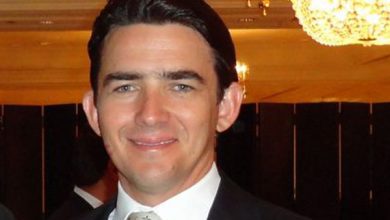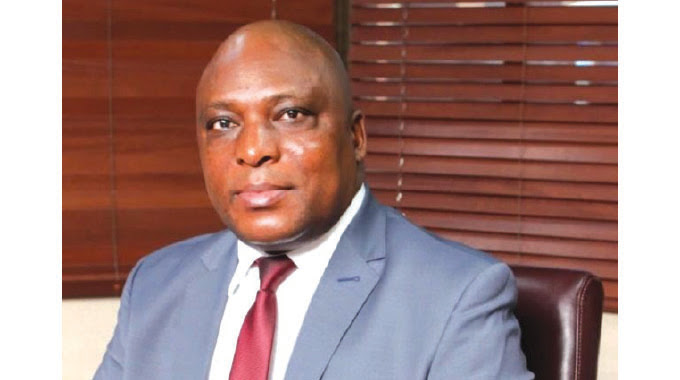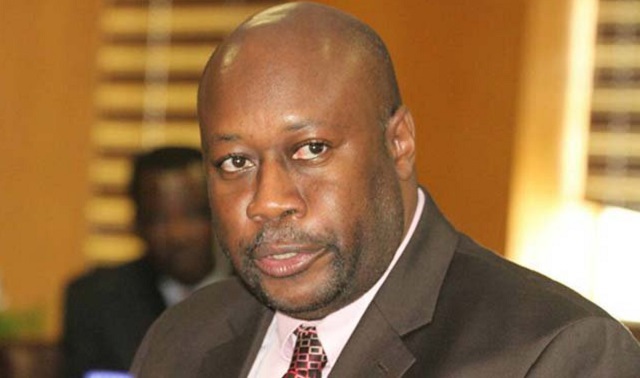Winnie Machanyuka (WM) was appointed the CEO of the Zimbabwe Tourism Authority (ZTA) in June this year.
Our Senior Reporter Mona-Lisa Dube (MD) caught up with Machanyuka (pictured) to talk about her new role, challenges affecting the sector, how the sector is responding to adverse impacts of Covid-19 pandemic, investments and the Sanganai/Hlanganani Tourism Expo which kicks off today in Bulawayo.
Below are excerpts:
MD: Congratulations on your new role as the CEO of ZTA. What is your overall assessment of the tourism sector in Zimbabwe?
WM: Thank you Mona-Lisa. I have been on the aviation side of tourism (as an executive at South African Airways and Swiss Air) and aviation aids people to get from one place to another. So, that’s a critical pillar of the tourism industry.
I also gained quite a bit of experience with the tourism business council (as the president of the Tourism Council Zimbabwe) to get an appreciation of the rest of the pillars of tourism like your accommodation and your activities.
So my initial assessment is the product side is the easy part, having hotels in place, having restaurants in place and all that.
Dealing with that side of business which I have come from was the easy part. But what has really been interesting for me is the policy side.
Having to deal with the Ministry of Tourism and everything that we need to have in place for tourism to function in the country. That has been a real eye opener for me and an area of interest.
As an industry, I think we are still trying to recover from the negative impact of Covid-19 pandemic.
The statistics we have is that industry lost about $1.5bn in potential revenue over the period that we had the shutdowns.
So we are trying to recoup that.
Remember if your facility is closed, it doesn’t mean that you don’t have costs. Companies are still trying to recover from this?
Tourists are coming through now and we see a steady increase in international visitors. Everyone is trying to play catch up to all those programs that they had set aside.
From that respect, we are recovering. But if you look at international travellers, you will find that the whole world is trying to come back.
The airlines are trying to come back, the hotels are trying to reopen. Some businesses folded, others came up during that time. So everyone is trying to engage with new clients, trying to put everything together. So it will take a little bit of time but the green shoots are there.
MD: What is the role of the ZTA in the Zimbabwe tourism space?
WM: Our mandate is to manage and promote the destinations. When we say manage, the area of management of the industry is where we grade and we put in standards for operators, licensing of operators within the industry so that our visitors are coming to facilities that have been designated and have been inspected. We ensure the standards are met and that people know about the destination.
MD: What’s the current perception about Zimbabwe?
WM: I will tell you quite honestly that I think for many years we spent a lot of money and a lot of effort in promoting the destination internationally. But, not much or very little was done to promote the destination locally.
We learnt that lesson very hard because when COVID-19 came we really noticed that deficiency that we had not marketed the destination enough locally.
All they knew was that Zimbabwe is very expensive meaning we pitched the product for international visitors more than we did for local visitors. We had to regroup and say we need to let our people know more about the destination.
And that’s when you have seen the campaign that ZTA has at #ZimBho. Not only do we want to market and let people know about what is available in the country but we are also introducing things like a culture of saving that we need to save for a holiday.
MD: In your view, is domestic tourism expensive?
WM: It is the case. And it really comes from a perspective where we say for a long time we pitched the product for international tourists because we wanted foreign currency. So we were not really paying attention.
MD: What should be done to make domestic tourism more affordable to locals?
WM: I think I must start by highlighting the fact that we have an issue of pricing and we need to address that. However, tourism also sits at the bottom of the value chain.
Everything that we have in tourism is a compound of costs from other areas where we do not have control over. For example, we do not have the control over eggs that are taken for breakfast.
We don’t have control over the bacon and so on. I think what we don’t realize sometimes is there are areas tourism doesn’t really have control over. Be that as it may, we are in this economy, we have to make things work.
MD: Would you say this is on top of your priorities as ZTA CEO?
WM: I don’t have a choice because everywhere I go I get bombarded by this question. So as the ZTA, we can’t sit back and say, we are a regulator and we are only regulating standards so we can’t get involved in the conversation about pricing. We have to get involved in that conversation about pricing. And we have to help industry unlock some of those doors that have been locked to them where they cannot have these conversations.
MD: How would you say Zimbabwe is faring compared to other countries in the region?
WM: I think we have no choice but to work together during this time coming out of COVID-19. If we look at international travel to this part of the world, southern Africa that is, the tourists that we get don’t visit one country.
They tend to visit a number of countries. So their itineraries have been designed in such a way that they either come through to Namibia, through to Zimbabwe and down to Cape Town.
We have no choice but to collaborate because we obviously want all those tourists that are coming to Namibia and other countries to come through to Zimbabwe as well. Those going to Botswana, South Africa and other countries to also come through to Zimbabwe and see the Victoria Falls and so on.
MD: Does the absence of international hotel brands in Zimbabwe concern you?
WM: I have got good news for you in that respect. Within the ZTA in recent years we did identify the fact that we need to get more investment particularly in tourism.
The team members that are working in that section have been travelling across the world going to different forums, different conferences where investors are coming and they’re looking at opportunities across the world to invest.
I can tell you that now we have three projects that will be coming up that are international brands. We have Radisson Blue that will be going up. We have a Hilton that will be going up.
I know that one local company has gone into or signed a MoU with the Times Hotels that are out of the Middle East also wanting to invest in the country.
We want international brands to be present in the market but those also can come on a partnership with locals.
So we are looking to pension funds, we are looking to banking institutions and those that have capital and are able to build structures.
They can build the structures and then the international operators can come in and operate these international plans, employ locally but be internationally branded. That is how we will have more investment in that direction come through to the country.
MD: The Sanganai/Hlanganani expo kicks off Thursday (today) and runs up to Saturday, tell us a bit more about that.
WM: People tend to think that travel shows are about hoteliers and airlines and tour operators getting together and just showcasing what they have.
But this is a perfect platform for anyone who has anything to do with tourism to be able to come and exhibit what they do at this platform, begin to make new partnerships, sign new deals, sign new MOUs, get into some synergies.
So if you’re supplying soap, shampoo and all that, the hotels are right there. Why don’t you come and have a conversation with them and begin to supply them? And I’m saying this out because we tend to think that tourism is big business but tourism is the one area where anyone can be a business person overnight.
You just have to identify the opportunities. Whether you are a vegetable supplier or a food supplier there is the platform for you where you are able to showcase what you can do for tourism. And who knows you might strike your next big deal there.




